State University of New York Chancellor Jim Malatras today joined SUNY Plattsburgh President Alexander Enyedi to announce the launch of pooled surveillance testing for COVID-19 on the Plattsburgh campus. This aggressive testing method – developed at SUNY Upstate Medical University and approved by the New York State Department of Health – greatly expands the college’s COVID-19 testing capacity. SUNY Plattsburgh will schedule testing of all students on campus. Chancellor Malatras also reviewed SUNY Plattsburgh’s reopening plan with President Enyedi and Student Association President Rudaba Abmed, which was approved by SUNY earlier this summer, and talked with students about the upcoming semester and the importance of COVID-19 safety precautions.
“As SUNY Plattsburgh resumes in-person classes this week, it is crucial that we have the most advanced and aggressive testing program at our disposal in place,” said Chancellor Malatras. “By launching pooled surveillance testing, we can run up to 25 samples as part of one test, giving SUNY Plattsburgh the ability to identify, trace, isolate, and treat cases much faster and ensure the safety of our students—which is always our number one priority. I want to thank SUNY Plattsburgh President Enyedi for this leadership in restarting his campus safely. By adopting this advanced testing protocol – which was developed at SUNY Upstate Medical University with the help of the public and private sectors – we are harnessing strategic partnerships and scaling system-wide ingenuity and innovation for the benefit of our students’ safety, health, and well being.”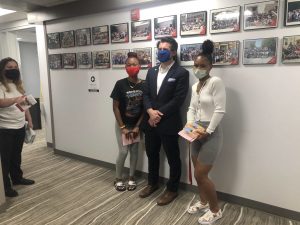
“It is a pleasure to welcome our new Chancellor to campus and show him what our successful restart looks like,” said SUNY Plattsburgh President Alexander Enyedi. “Our campus worked incredibly hard for four months on a plan and are now implementing the day to day details, including protocols that have helped us manage isolations and quarantines to keep our campus safe while continuing to provide a quality educational experience. The saliva pool test is an exciting innovation developed in-house by SUNY scientists, and will allow us to closely monitor potential cases on-campus throughout the rest of the semester, adding another layer as we strive to protect the health safety of campus and the local community.”
“It was great having Jim visit us within days of his appointment as Chancellor,” said North Country Chamber of Commerce President and CEO Garry Douglas. “He’s been a great partner to us in the North Country for the past decade in other key roles with the Governor, and we truly look forward to an active and productive connection going forward. As we eventually emerge from this pandemic, our area remains ready to continue building its international manufacturing base, particularly in the field of transportation equipment and aerospace, and to take our productive economic partnership with Quebec to entirely new levels. The Chancellor understands these strategies and I know, under his leadership, SUNY will be a truly great collaborator.”
“We are pleased to support SUNY Plattsburgh’s reopening plans with the saliva-testing protocol we have developed here at SUNY Upstate Medical University with our Start Up New York partner, Quadrant Biosciences,” said Mantosh Dewan, MD, interim president of SUNY Upstate Medical University. “The work of preparing for the safe return of students to campus is important as New York responds to the COVID pandemic.”
Earlier this summer, SUNY was approved by the New York State Department of Health to undertake pooled surveillance testing for COVID-19—an innovative method where numerous samples can be run as part of one test. SUNY’s pooled testing approach was developed and validated by SUNY Upstate Medical University’s laboratory and Quadrant Biosciences, and will use saliva samples, pooled in batches as small as 10 samples and as large as 25 samples.
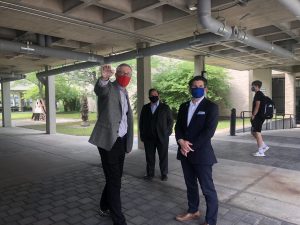
The pooled testing allows for about 10-25 people to be screened in one test. The testing can be done using saliva rather than by swabs that are inserted in a patient’s nose. Individuals administer the tests themselves, swabbing their mouths for 10 or 15 seconds each, and provide the saliva samples to medical personnel.
Their samples are combined into one, which is tested for coronavirus. A negative test means that all 10-25 people in the group are presumed at the time to be coronavirus-free. A positive test for the pool would mean every person in that group would need to be individually tested by a PCR test.
The pooled testing simplifies sample collection processes, making it feasible to collect samples at large scale and during a short period of time. It also reduces the total number of tests needed and accelerates turn-around time from specimen collection to testing results.
SUNY Plattsburgh resumed classes on Monday. Half of the college’s courses are being offered remotely, and approximately one-third will take place face-to-face in modified classrooms. Prior to the school year, campus leaders evaluated classrooms for density, moved and adjusted furniture, installed signage and Plexiglas when needed, and acquired personal protective equipment, cleaning supplies, and MERV-13 filters. All students, faculty, and staff are required to wear masks or other face coverings in classrooms, restrooms, elevators, lecture halls, common spaces, studios, and labs whenever they are occupied by more than one person. Students, faculty, and staff are all also required to self-screen daily.
Today’s visit marked Chancellor Malatras’ second college visit in three days and is part of his campus reopening tour. On Sunday, he visited SUNY New Paltz, where he announced $100,000 in seed funding for the SUNY Prepare Innovation and Internship Program. The program will offer grants to faculty across the SUNY system who are developing new technologies to improve the design and production of PPE. Proposals must include a student internship or research component.



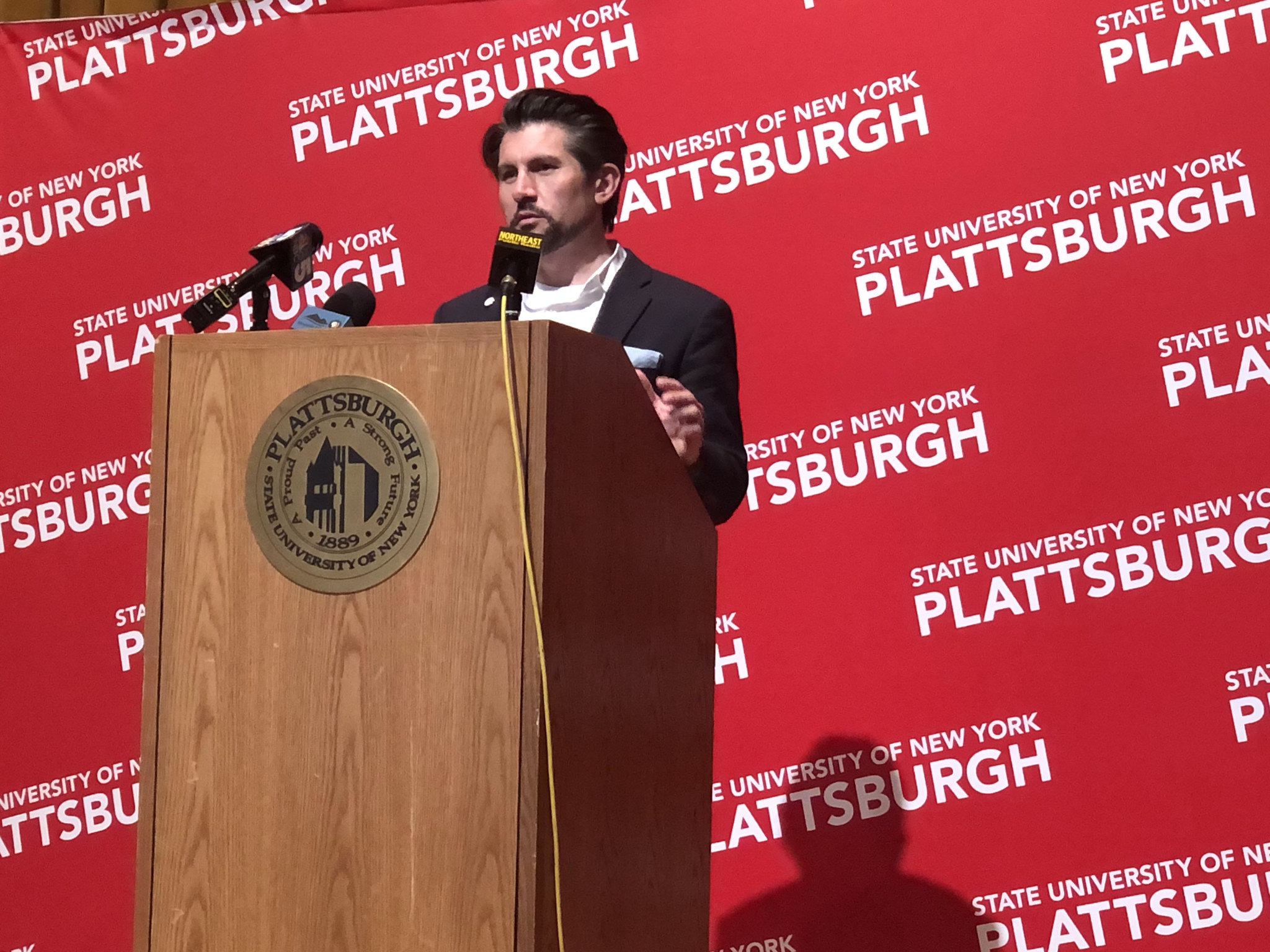
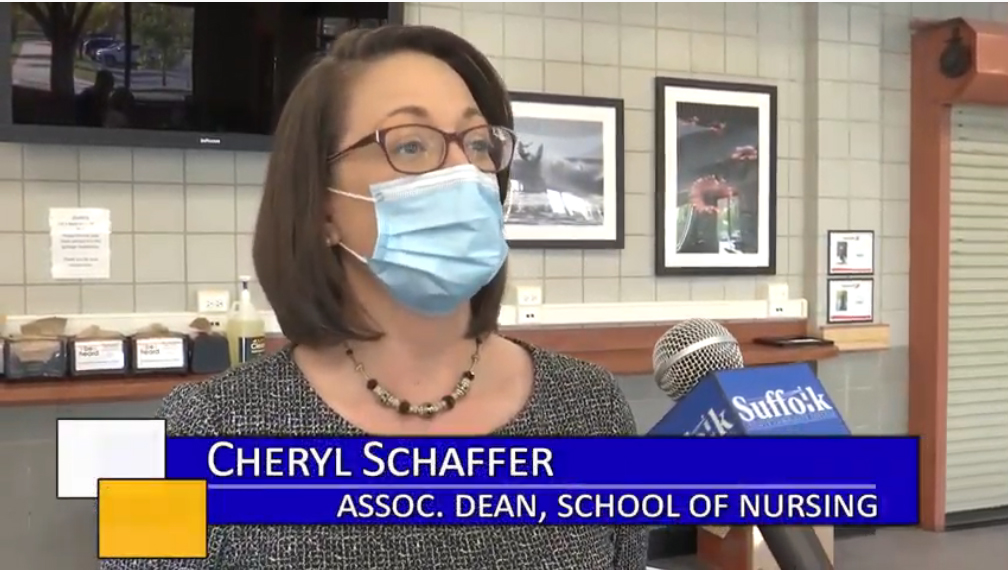

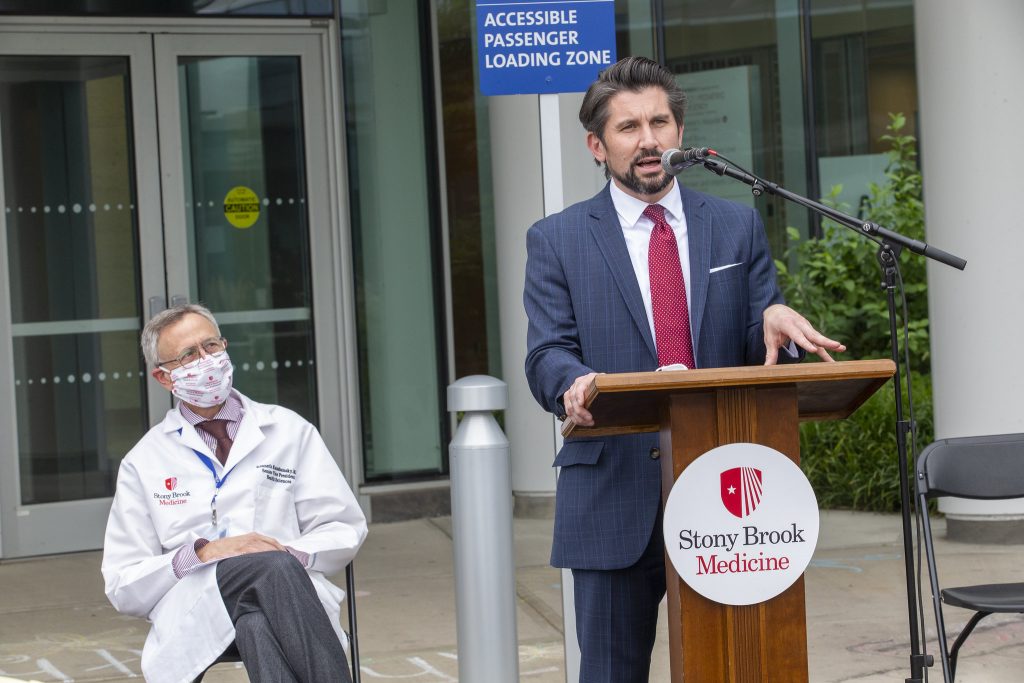
Facebook Comments